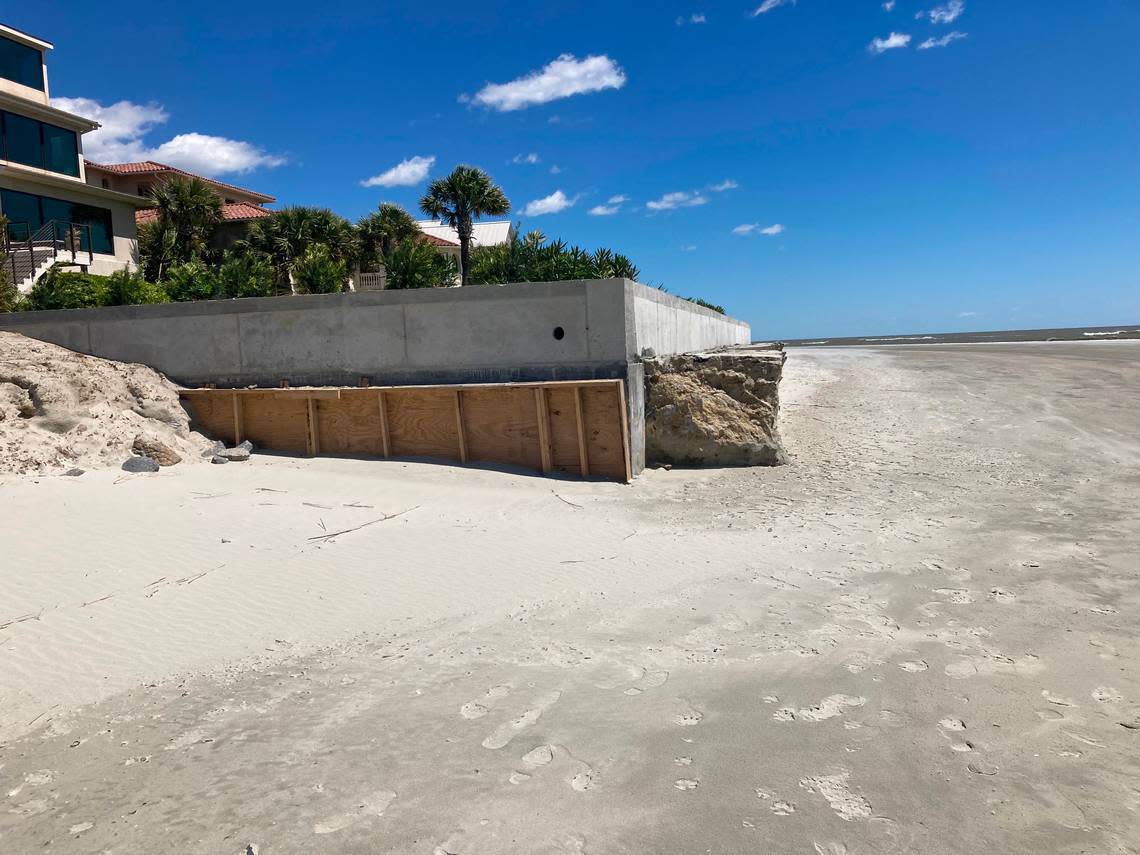Politicians back wealthy landowners in beach fight. That could cost the public millions

Legislation that could require South Carolina to pay wealthy seaside property owners who win legal battles involving oceanfront development has been approved as part of the state budget.
Two provisos, agreed to late last week by state budget negotiators, make it potentially harder for state regulators to enforce laws that protect the public beach.
But the provisos also would have the public pay the legal costs of oceanfront landowners if the state loses or drops cases against them. The state could be liable to pay a minimum of $2 million, if not more, according to some calculations.
With almost no discussion, budget negotiators voted to include the provisos in next year’s spending plan. The overall budget still needs approval before it is sent to Gov. Henry McMaster for consideration.
“There could be a substantial negative impact on taxpayers and there are environmental concerns,’’ state Rep. Leon Stavrinakis, a Charleston Democrat, said. He was the lone member of the budget negotiating committee to vote against the provisos.
Unlike bills in the Legislature, provisos are not typically vetted during public hearings and often can slip quickly through with little public oversight. They are often added to the state budget during debate in the Senate and House. They are effective for only a year and must be renewed annually.
In this case, lawmakers on the budget committee voted for the Senate-approved provisos. Stavrinakis said the provisos are a concern and the issues are “worthy of full public review and public debate.’’
State Rep. Spencer Wetmore, a Folly Beach Democrat who is not on the budget committee, said she worries about the cost and the state’s ability to enforce laws limiting development on the beach if the budget measures take effect.
“I would call these provisos out of bounds,’’ she said, noting there would be “a chilling effect on enforcement.’’
The budget provisos pushed by state Sen. Stephen Goldfinch, R-Georgetown, are in response to recent disputes between state officials and oceanfront property owners whose homes are threatened by rising seas.
Erosion hot spots at the Isle of Palms, Debordieu, Garden City and Litchfield Beach are among those areas. State regulators have made enforcement cases against some homeowners who built seawalls in places along the beach where the structures are forbidden because of the impact they have on the seashore.
While protecting property, seawalls worsen erosion when hit by waves, thus narrowing the beach for the public to walk on. New seawalls have been banned in jurisdictional areas of the public beach since 1988.
But critics of the state’s recent enforcement efforts say the property owners are only trying to protect their investments and need help. They also have questioned whether the state is taking action in areas outside South Carolina’s authority.
Efforts to reach Goldfinch were unsuccessful, but he has previously said the Department of Health and Environmental Control’s coastal division is “coming along and saying ‘This is our jurisdiction now.’ ‘
One of the provisos requires the state to reassess enforcement cases made against oceanfront property owners in the past six years to see if the owners would be in violation when the restricted areas are reassessed in coming years. If new boundaries are less restrictive and the cases are dropped, the state must compensate landowners for “all costs incurred to defend’’ themselves in the enforcement cases. That could cause state regulators to drop cases because of the potential expense, critics say.
State Sen. Sandy Senn, R-Charleston, has cited statistics showing that South Carolina has made about 100 cases in the past six years against alleged construction or repair of seawalls. Such legal cases can cost a minimum of $20,000 for property owners, which would mean the state could wind up paying $2 million if property owners won all 100 cases.
The other proviso makes it easier for a property owner to challenge a determination of where the beach starts. If an administrative judge sides with the property owner, the state “may be solely responsible for the attorneys fees and costs.’’
It was unknown if McMaster would support the provisos. No decisions has been made, a spokesman said. But the governor has in the past vetoed beach legislation that he did not think was fully vetted.
In 2019, McMaster vetoed legislation that would have allowed a small group of homeowners to fix a sagging seawall that jutted far onto the beach in the exclusive Debordieu development near Georgetown.

